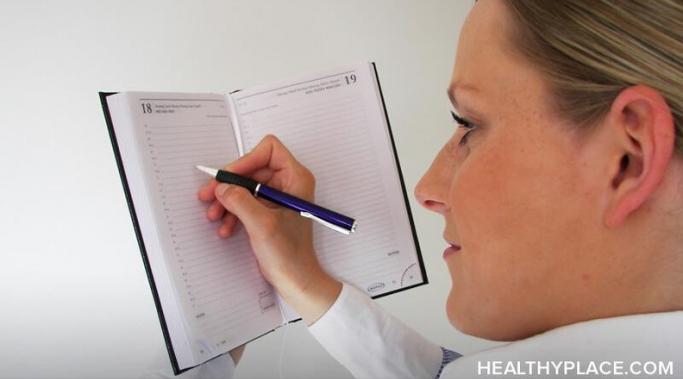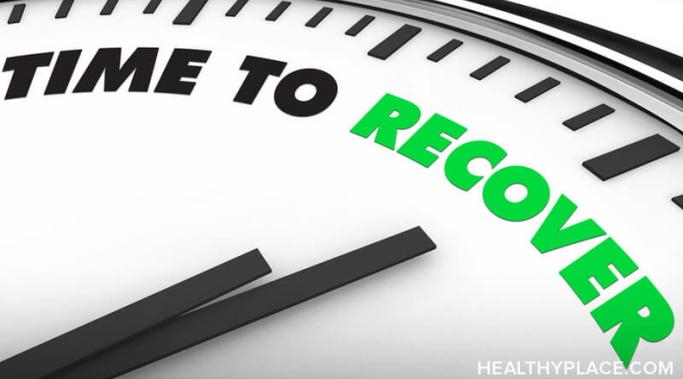Blogs
Children with disruptive mood dysregulation disorder (DMDD) may go through a couple diagnoses, including oppositional defiance disorder (ODD), in the beginning. This is partly because DMDD is a newer disorder, but it also looks like other illnesses--especially ODD. My son's first providers diagnosed him with ODD, and other DMDD parents have told me their kids also started with that diagnosis. There is, however, a subtle difference between the two.
Mental illness can affect criminal behavior, but it's important to dissociate people with mental illness from violent acts and criminality in general. People often assume that a person must be mentally ill to commit an especially heinous crime. This stigma has been discussed at length, including how people with mental health issues are more likely to be victims of violent crime, but I want to approach the conversation about mental illness and criminal behavior differently.
Performance anxiety may prevent me from living my dream of singing professionally. Since junior high school, choir teachers and audience members commented on my anxious stage presence. I loved to sing with other people in unison or harmony, but when it came to solos, I was a nervous wreck. I was the recipient of the “Every Which Way but Loose” award in high school choir because onstage, I simply couldn’t relax and enjoy performing. Performance anxiety was front and center at every concert, and it often stole my spotlight.
Having realistic goals benefits your mental health, but many people with depression or other mental illnesses struggle to set goals. Read on to learn about how to make and keep goals that benefit your mental health even if you're living with a mental illness.
My name is Michelle Sedas, and I am the Author of Coping with Depression. I’m delighted to get to blog for HealthyPlace. As the saying goes, “Write what you know,” and with my history of depression, I can’t think of a blog more suited for me to write.
My name is Emily J. Sullivan and I’m thrilled to join the HealthyPlace blogging team as the newest author of the Verbal Abuse in Relationships blog. My earliest friendships and my first dating experiences were rampant with dysfunction. Con men, mean girls, gaslighters, and narcissists have always found their way into my heart. I’m not sure if it’s because I could always see the good in people or if I was an easy target. Whatever the reason, I spent years of my life in relationships and friendships with people who have been able to emotionally overpower me with verbal abuse. Verbal abuse can mentally cripple a person, diminish their self-worth, and alienate them from the loving relationships in their lives.
Defining myself outside of mental illness is something I must do. Dealing with my schizoaffective disorder and generalized anxiety disorder can be a full-time job, but I am more than my mental illness symptoms. It's difficult to define myself outside of mental illness sometimes. Anxiety makes bathing difficult, cooking impossible (luckily, my husband Tom cooks for us), and I’m even afraid to go out in the rain. Through all of this, I try to weave other things into my life that define who I am beyond mental illness.
The first 90 days of addiction recovery are often the most critical. It is during these first few months that most relapses occur. You are very new to recovery, and even though you may have learned a lot about coping skills and relapse prevention if you went to treatment, you have not yet had the opportunity to put it into practice in your life away from rehab. Becoming comfortable at home without your drug of choice is something that takes time and patience, so it’s important to have a relapse prevention plan of action during these first 90 days of addiction recovery.
Mindfulness-based stress reduction, or MBSR, for anxiety is much more than just a long, official-sounding, somewhat intimidating name. MBSR is an accessible process that helps people of all ages, beliefs, and backgrounds turn stress and struggles like anxiety into positive change for their lives. Developed by Jon Kabat-Zinn in 1979, MBSR is a program that uses mindfulness to enhance wellbeing. In doing that, MBSR reduces stress and anxiety when they interfere in your life. Whether or not you participate in a formal program, you can use MBSR to rein in your anxiety and stress.
Are the effects of trauma tempting you to withdraw into your eating disorder? Are you all too familiar with that bone-deep torment, roused by memories you didn’t choose to recall but might never forget? Can you feel the aftershocks surging through your body, invading the corners of your mind? Do you numb out from the world, from the pain, from yourself? Have your methods of coping turned into behaviors that you can no longer control? Did you know this struggle involving trauma and an eating disorder is not yours to fight alone?









